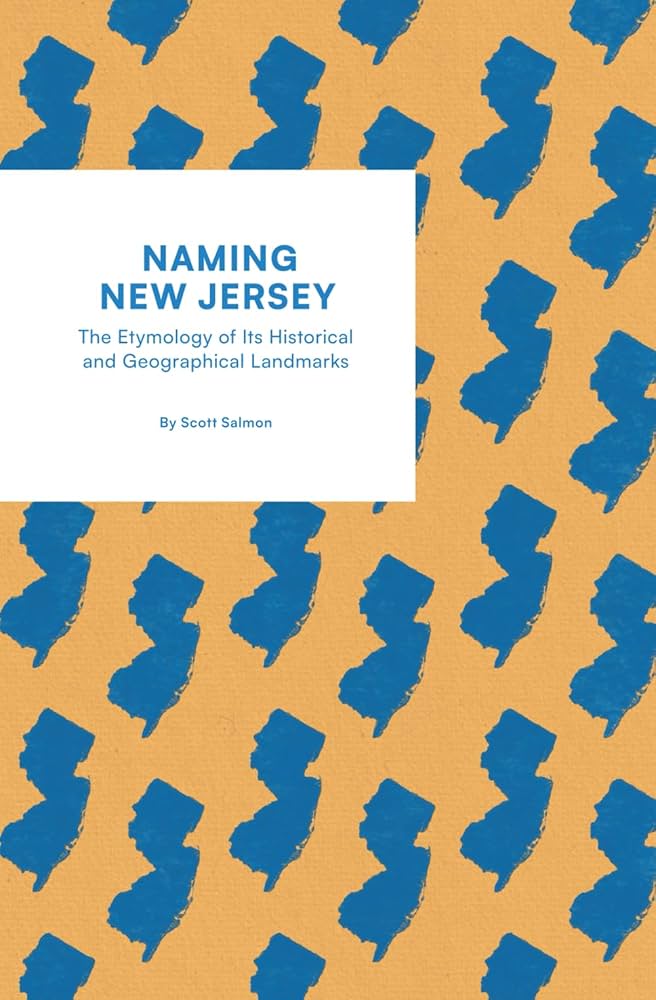After more than four years of meticulous research, attorney Scott Salmon has published Naming New Jersey, a book that traces the history and etymology of 850 towns, neighborhoods, and landmarks across the state. The project combines in-depth historical investigation with cultural storytelling, offering readers a unique window into the state’s rich and often surprising past.
Salmon, a co-managing partner at Jardim Meisner Salmon Sprague & Susser PC, is widely recognized for his work in election and municipal law, but his passion for local history led him to dig into old maps, property deeds, ship manifests, and town records to uncover the origins of names like Vineland, Ironbound, Freehold, Belleville, Bargaintown, and Keyport. He describes the book as both a reference guide and an engaging coffee-table read, ideal for anyone curious about the stories behind New Jersey’s diverse communities.
The book’s entries are organized by county and reveal how geography, culture, and historical events influenced naming conventions. In North Jersey, many towns reflect Native American or Dutch origins, while South Jersey features names tied to topography or natural resources. Some towns honor notable figures or historical events, from Benjamin Franklin and George Washington to the Mexican-American War. Salmon also investigates quirky or unusual names, including Cheesequake, Moonachie, and Buttzville, offering readers insights that challenge traditional accounts.
Salmon’s fascination with New Jersey place names began with a 1945 pamphlet produced by the Federal Writers’ Project, The Origin of New Jersey Place Names, which provided brief descriptions of over 900 locations. While the pamphlet offered a starting point, Salmon quickly discovered discrepancies and incomplete information, inspiring him to verify details and uncover more accurate historical context. For example, his research into Absecon revealed that the commonly cited “Absegami” tribal origin was likely incorrect, instead tracing the name to words in the Unami or Algonquian languages connected to local resources like salt. He also questioned the accepted story of Scotch Plains, concluding that its name reflects the Scottish settlers of the area rather than the individual George Scot, as previously suggested.
The author emphasizes that New Jersey’s place names reflect a complex tapestry of influences, from European settlers to Native American tribes, and from topographical features to notable events and figures. “New Jersey has one of the richest histories of any state in our country,” Salmon says. “Understanding the origins of these names gives us a deeper appreciation for the communities we live in and visit.”
Naming New Jersey is 86 pages and available for purchase online. All profits from the book will be donated to the Bridge of Books Foundation, a nonprofit in Atlantic Highlands that promotes literacy by providing books to children who may otherwise have limited access to them. Salmon also plans to donate copies to local libraries, extending the educational impact of his research.
The project allowed Salmon to combine his investigative skills with his personal interest in history and etymology, drawing on maps, deeds, passenger manifests, church records, and linguistic resources to verify and correct existing information. He notes that researching Native American place names presented challenges due to the loss of fluent speakers in the Unami and Munsee dialects and variations in historical spellings. Despite these hurdles, Salmon believes his findings are among the most accurate available, providing a reliable reference for residents and history enthusiasts alike.
In addition to revealing fascinating details about individual towns, the book explores broader patterns in naming conventions, showing how New Jerseyans honored local resources, cultural heritage, and historical events. Salmon hopes readers will come away with both knowledge and curiosity, encouraging further exploration into the state’s past.
Salmon’s legal career complements his historical interests, as he serves as town attorney for multiple municipalities and advises on election law, land use, and campaign matters. His work has included high-profile cases involving ballot access, bilingual ballots, and election disputes, underscoring his commitment to civic engagement and community service.
For anyone interested in discovering the stories behind New Jersey’s communities, exploring the state’s unique geography, or delving into the history of local landmarks, Naming New Jersey offers a compelling and authoritative resource. More information about New Jersey travel, local history, and educational resources can be found at Explore New Jersey.












